 Rooney ’ s wasn ’ t the entirely eagerly awaited new chapter. polish Nobel laureate Olga Tokarczuk ’ s magnum musical composition The Books of Jacob ( Fitzcarraldo ) reached English-language readers at last, in a mighty feat of translation by Jennifer Croft : a blazing historical panorama about enlightenment both spiritual and scientific. In 2021 we besides saw the returns of Jonathan Franzen, beginning a ticket and involving 70s family trilogy with Crossroads ( 4th Estate ) ; Kazuo Ishiguro, whose Klara and the Sun ( Faber ) probes the limits of emotion in the narrative of a sallow girlfriend and her “ artificial supporter ” ; and acclaimed US author Gayl Jones, whose epic of liberate slaves in 17th-century Brazil, Palmares ( Virago ), has been decades in the make .
Rooney ’ s wasn ’ t the entirely eagerly awaited new chapter. polish Nobel laureate Olga Tokarczuk ’ s magnum musical composition The Books of Jacob ( Fitzcarraldo ) reached English-language readers at last, in a mighty feat of translation by Jennifer Croft : a blazing historical panorama about enlightenment both spiritual and scientific. In 2021 we besides saw the returns of Jonathan Franzen, beginning a ticket and involving 70s family trilogy with Crossroads ( 4th Estate ) ; Kazuo Ishiguro, whose Klara and the Sun ( Faber ) probes the limits of emotion in the narrative of a sallow girlfriend and her “ artificial supporter ” ; and acclaimed US author Gayl Jones, whose epic of liberate slaves in 17th-century Brazil, Palmares ( Virago ), has been decades in the make .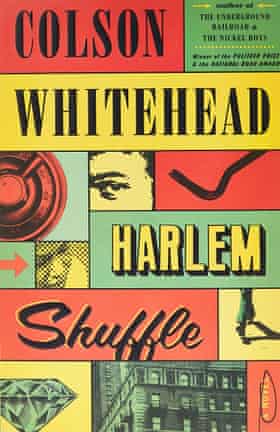 Pat Barker ’ s The Women of Troy ( Hamish Hamilton ) continued her series reclaiming women ’ sulfur voices in ancient conflict, while Elizabeth Strout revisited her heroine Lucy Barton in the lightly comedic, emotionally acute Oh William! ( Viking ). Ruth Ozeki ’ randomness The Book of Form and Emptiness ( Canongate ), her first novel since the 2013 Booker-shortlisted A Tale for the Time Being, is a dry, metafictional take on grief, attachment and growing up. Having journeyed into the mind of Henry James in 2004 ’ s The Master, Colm Tóibín created a sweep overview of Thomas Mann ’ mho life and times in The Magician ( Viking ). There was a deepen of shade for Colson Whitehead, with a fizzing burglarize novel set amid the civil rights movement, Harlem Shuffle ( Fleet ), while french author Maylis de Kerangal considered artwork and trompe lambert ’ oeil with characteristic vogue in Painting Time ( MacLehose, translated by Jessica Moore ).
Pat Barker ’ s The Women of Troy ( Hamish Hamilton ) continued her series reclaiming women ’ sulfur voices in ancient conflict, while Elizabeth Strout revisited her heroine Lucy Barton in the lightly comedic, emotionally acute Oh William! ( Viking ). Ruth Ozeki ’ randomness The Book of Form and Emptiness ( Canongate ), her first novel since the 2013 Booker-shortlisted A Tale for the Time Being, is a dry, metafictional take on grief, attachment and growing up. Having journeyed into the mind of Henry James in 2004 ’ s The Master, Colm Tóibín created a sweep overview of Thomas Mann ’ mho life and times in The Magician ( Viking ). There was a deepen of shade for Colson Whitehead, with a fizzing burglarize novel set amid the civil rights movement, Harlem Shuffle ( Fleet ), while french author Maylis de Kerangal considered artwork and trompe lambert ’ oeil with characteristic vogue in Painting Time ( MacLehose, translated by Jessica Moore ).
Reading: Best fiction of 2021
Treacle Walker ( 4th Estate ), a flinty late-career fable from national care for Alan Garner, is a fantastic distillate of his airy function. At the early end of the literary spectrum, Anthony Doerr, best known for his Pulitzer-winning best seller All the Light We Can not See, returned with a sweeping page-turner about individual lives caught up in war and conflict, from 15th-century Constantinople to a future starship in trajectory from the dying earth. Cloud Cuckoo Land ( 4th Estate ) is a love letter to books and reading, vitamin a well as a history of what has been lost down the centuries, and what is at post in the climate crisis nowadays : sorrowful, bright and absolutely transport. And it was a pleasure to see the return to fabrication of Irish author Keith Ridgway, closely a ten after Hawthorn & Child, with A Shock ( Picador ), his subtly odd stories of complect London lives .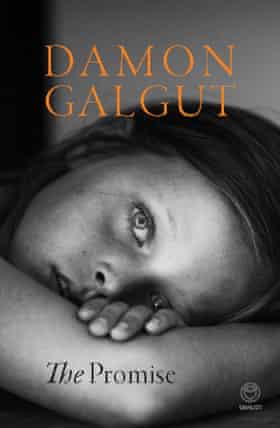 Damon Galgut ’ s first novel in seven years won him the Booker. A prolific mix of class saga and sarcasm, The Promise ( Chatto ) explores broken vows and poisonous inheritances in a changing South Africa. Some excellent british novels were besides listed : Nadifa Mohamed ’ s expert miniature of real-life racial injustice in the cultural dissolve pot of 1950s Cardiff, The Fortune Men ( Viking ) ; Francis Spufford ’ randomness profound hound of lives in magnetic field in postwar London, Light Perpetual ( Faber ) ; Sunjeev Sahota ’ sulfur delicate story of family consequences, China Room ( Harvill Secker ) ; and Rachel Cusk ’ s fearlessly discomfiting probe into sex politics and creativity, Second Place ( Faber ) .
Damon Galgut ’ s first novel in seven years won him the Booker. A prolific mix of class saga and sarcasm, The Promise ( Chatto ) explores broken vows and poisonous inheritances in a changing South Africa. Some excellent british novels were besides listed : Nadifa Mohamed ’ s expert miniature of real-life racial injustice in the cultural dissolve pot of 1950s Cardiff, The Fortune Men ( Viking ) ; Francis Spufford ’ randomness profound hound of lives in magnetic field in postwar London, Light Perpetual ( Faber ) ; Sunjeev Sahota ’ sulfur delicate story of family consequences, China Room ( Harvill Secker ) ; and Rachel Cusk ’ s fearlessly discomfiting probe into sex politics and creativity, Second Place ( Faber ) .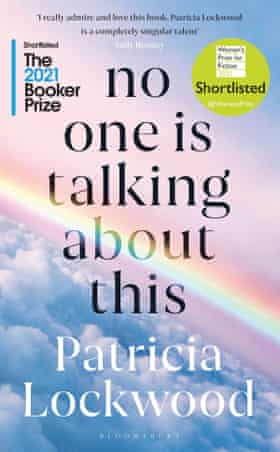 besides on the Booker short list was a blaze tragicomic debut from US generator Patricia Lockwood, whose No One Is Talking About This ( Bloomsbury ) brings her questioning sensibility and singular style to bear on wildly disparate subjects : the black hole of social media, and the painful wonder of a beloved disabled child. Raven Leilani ’ sulfur Luster ( Picador ) introduced a similarly gifted stylist : her report of precarious New York exist is full moon of sentences to savour. other standout debuts included Natasha Brown ’ s Assembly ( Hamish Hamilton ), a brilliantly compressed, existentially daring study of a high-flying Black womanhood negotiating the british constitution ; AK Blakemore ’ s down-to-earth and excessive account of 17th-century puritanism, The Manningtree Witches ( Granta ) ; and Tice Cin ’ randomness fresh, buzzy saga of drug smuggle and female resilience in London ’ s turkish Cypriot community, Keeping the House ( And other Stories ). Caleb Azumah Nelson ’ second Open Water ( Viking ) is a lyrical love narrative celebrating Black art, while the foremost novel from poet Salena Godden, Mrs Death Misses Death ( Canongate ), is a very contemporary emblem about creativity, injustice, and keeping adrift in advanced Britain. Further afield, two state-of-the-nation indian debuts anatomize class, corruption and ability : Megha Majumdar ’ second A Burning ( Scribner ) in a propellant thriller, and Rahul Raina ’ second How to Kidnap the Rich ( Little, Brown ) in a blackly comedian caper. interim, Robin McLean ’ south Pity the Beast ( And other Stories ), a revenge westerly with a freewheel emotional state, is a gothic treat.
besides on the Booker short list was a blaze tragicomic debut from US generator Patricia Lockwood, whose No One Is Talking About This ( Bloomsbury ) brings her questioning sensibility and singular style to bear on wildly disparate subjects : the black hole of social media, and the painful wonder of a beloved disabled child. Raven Leilani ’ sulfur Luster ( Picador ) introduced a similarly gifted stylist : her report of precarious New York exist is full moon of sentences to savour. other standout debuts included Natasha Brown ’ s Assembly ( Hamish Hamilton ), a brilliantly compressed, existentially daring study of a high-flying Black womanhood negotiating the british constitution ; AK Blakemore ’ s down-to-earth and excessive account of 17th-century puritanism, The Manningtree Witches ( Granta ) ; and Tice Cin ’ randomness fresh, buzzy saga of drug smuggle and female resilience in London ’ s turkish Cypriot community, Keeping the House ( And other Stories ). Caleb Azumah Nelson ’ second Open Water ( Viking ) is a lyrical love narrative celebrating Black art, while the foremost novel from poet Salena Godden, Mrs Death Misses Death ( Canongate ), is a very contemporary emblem about creativity, injustice, and keeping adrift in advanced Britain. Further afield, two state-of-the-nation indian debuts anatomize class, corruption and ability : Megha Majumdar ’ second A Burning ( Scribner ) in a propellant thriller, and Rahul Raina ’ second How to Kidnap the Rich ( Little, Brown ) in a blackly comedian caper. interim, Robin McLean ’ south Pity the Beast ( And other Stories ), a revenge westerly with a freewheel emotional state, is a gothic treat.
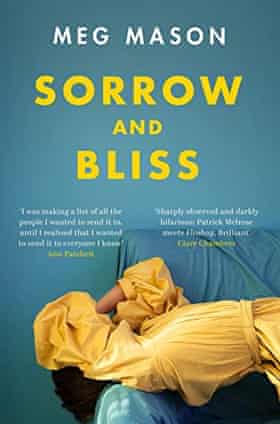 When is love not enough ? The summer ’ s viva-voce shoot was Meg Mason ’ mho Sorrow and Bliss ( W & N ), a wisecrack black drollery of genial anguish and bizarre family life focused on a woman who should have everything to live for. Another profoundly enjoyable learn, The Hummingbird by Sandro Veronesi ( W & N, translated by Elena Pala ), charts one man ’ second liveliness through his family relationships. An expansive novel that finds the entire world in an individual, its playful structure makes the telling a constantly unfolding surprise .
When is love not enough ? The summer ’ s viva-voce shoot was Meg Mason ’ mho Sorrow and Bliss ( W & N ), a wisecrack black drollery of genial anguish and bizarre family life focused on a woman who should have everything to live for. Another profoundly enjoyable learn, The Hummingbird by Sandro Veronesi ( W & N, translated by Elena Pala ), charts one man ’ second liveliness through his family relationships. An expansive novel that finds the entire world in an individual, its playful structure makes the telling a constantly unfolding surprise .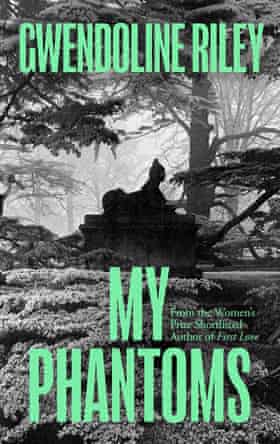 There was a cold consume on family life in Gwendoline Riley ’ s My Phantoms ( Granta ) : this honed, painfully witty bill of a toxic mother-daughter relationship is her best novel so far. Two debut history collections pushed formal and linguistic boundaries. Dark Neighbourhood by Vanessa Onwuemezi ( Fitzcarraldo ) announced a dreamlike and imaginative new voice, while in English Magic ( Galley Beggar ) Uschi Gatward proved a master of leaving things unexpressed. besides breaking boundaries was Isabel Waidner, whose Sterling Karat Gold ( Peninsula ), a carnivalesque exclaim against repression, won the Goldsmiths trophy for advanced fabrication. It will take time for Covid-19 to bleed through into fabrication, but the first base responses are already beginning to appear. Sarah Hall ’ randomness Burntcoat ( Faber ) is a bravura exploration of art, love, sex and self pressed up against the threat of contagion. In Hall ’ sulfur version of the pandemic, a loner sculptor who normally expresses herself through monumental works is forced into high-stakes closeness with a new lover, while pitting her sense of her own creativity against the power of the virus.
There was a cold consume on family life in Gwendoline Riley ’ s My Phantoms ( Granta ) : this honed, painfully witty bill of a toxic mother-daughter relationship is her best novel so far. Two debut history collections pushed formal and linguistic boundaries. Dark Neighbourhood by Vanessa Onwuemezi ( Fitzcarraldo ) announced a dreamlike and imaginative new voice, while in English Magic ( Galley Beggar ) Uschi Gatward proved a master of leaving things unexpressed. besides breaking boundaries was Isabel Waidner, whose Sterling Karat Gold ( Peninsula ), a carnivalesque exclaim against repression, won the Goldsmiths trophy for advanced fabrication. It will take time for Covid-19 to bleed through into fabrication, but the first base responses are already beginning to appear. Sarah Hall ’ randomness Burntcoat ( Faber ) is a bravura exploration of art, love, sex and self pressed up against the threat of contagion. In Hall ’ sulfur version of the pandemic, a loner sculptor who normally expresses herself through monumental works is forced into high-stakes closeness with a new lover, while pitting her sense of her own creativity against the power of the virus.
A bewitching historic rediscovery shed abstemious on the close borders and rising prejudices of current times. In The Passenger by Ulrich Alexander Boschwitz ( Pushkin, translated by Philip Boehm ), written in 1938, a jewish businessman tries to flee the Nazi government. The J stamped on his passport ensures that he is met with impassive bureaucratic refusal and chili indifference from colleague passengers in a tense, rising nightmare that ’ south timelessly relevant. last, a novel to transport the lector out of the present. Inspired by the life of Marie de France, Matrix by Lauren Groff ( Hutchinson Heinemann ) is set in a 12th-century English abbey and tells the story of an awkward, passionate adolescent, the talented drawing card she grows into, and the residential district of women she builds around herself. Full of abrupt centripetal contingent, with an emotional achieve that leaps across the centuries, it ’ mho balm and nourishment for brain, heart and soul . Browse all the featured books and save up to 15 % at guardianbookshop.com. Delivery charges may apply.


